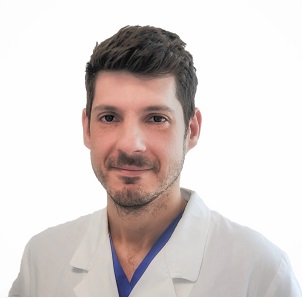Studying at the University of Verona
Here you can find information on the organisational aspects of the Programme, lecture timetables, learning activities and useful contact details for your time at the University, from enrolment to graduation.
Academic calendar
The academic calendar shows the deadlines and scheduled events that are relevant to students, teaching and technical-administrative staff of the University. Public holidays and University closures are also indicated. The academic year normally begins on 1 October each year and ends on 30 September of the following year.
Course calendar
The Academic Calendar sets out the degree programme lecture and exam timetables, as well as the relevant university closure dates..
| Period | From | To |
|---|---|---|
| INF VI - 1° anno 1° sem | Oct 1, 2018 | Dec 21, 2018 |
| INF VI - 2° anno 1° sem | Oct 1, 2018 | Dec 21, 2018 |
| INF VI - 3° anno 1° sem | Oct 15, 2018 | Dec 21, 2018 |
| INF VI - 1° anno 2° sem | Feb 4, 2019 | Apr 5, 2019 |
| INF VI - 3° anno 2° sem | Feb 4, 2019 | Mar 29, 2019 |
| INF VI - 2° anno 2° sem | Apr 29, 2019 | Jun 28, 2019 |
| Session | From | To |
|---|---|---|
| INF VI - sessione invernale 1°-2°-3° anno | Jan 7, 2019 | Jan 31, 2019 |
| INF VI - sessione estiva 3° anno (1^ parte) | Apr 1, 2019 | Apr 17, 2019 |
| INF VI - sessione estiva 1° anno (1^ parte) | Apr 8, 2019 | Apr 18, 2019 |
| INF VI - sessione estiva 2° anno | Jul 8, 2019 | Jul 31, 2019 |
| INF VI - sessione estiva 1° anno (2^ parte) | Jul 15, 2019 | Jul 31, 2019 |
| INF VI - sessione estiva 3° anno (2^ parte) | Jul 18, 2019 | Jul 31, 2019 |
| INF VI - sessione autunnale 1°-2°-3° anno | Sep 2, 2019 | Sep 27, 2019 |
| Session | From | To |
|---|---|---|
| INF - SESSIONE AUTUNNALE | Oct 1, 2019 | Nov 30, 2019 |
| INF - SESSIONE PRIMAVERILE | Mar 1, 2020 | Apr 30, 2020 |
| Period | From | To |
|---|---|---|
| Festa di Ognissanti | Nov 1, 2018 | Nov 1, 2018 |
| Festa dell’Immacolata | Dec 8, 2018 | Dec 8, 2018 |
| Vacanze di Natale | Dec 22, 2018 | Jan 6, 2019 |
| Vacanze di Pasqua | Apr 19, 2019 | Apr 23, 2019 |
| Festa del lavoro | May 1, 2019 | May 1, 2019 |
| Festa della Repubblica | Jun 2, 2019 | Jun 2, 2019 |
| Description | Period | From | To |
|---|---|---|---|
| INF VI - 2° anno 1^ esp | INF VI - 2° anno 1^ esp | Feb 1, 2019 | Mar 8, 2019 |
| INF VI - 2° anno 2^ esp | INF VI - 2° anno 2^ esp | Mar 18, 2019 | Apr 28, 2019 |
| INF VI - 3° anno 1^ esp | INF VI - 3° anno 1^ esp | Apr 18, 2019 | May 31, 2019 |
| INF VI - 1° anno 1^ esp | INF VI - 1° anno 1^ esp | Apr 29, 2019 | May 31, 2019 |
| INF VI - 1° anno 2^ esp | INF VI - 1° anno 2^ esp | Jun 10, 2019 | Jul 12, 2019 |
| INF VI - 3° anno 2^ esp | INF VI - 3° anno 2^ esp | Jun 10, 2019 | Jul 19, 2019 |
| INF VI - 3° anno 3^ esp | INF VI - 3° anno 3^ esp | Sep 2, 2019 | Oct 11, 2019 |
| INF VI - 2° anno 3^ esp | INF VI - 2° anno 3^ esp | Sep 2, 2019 | Oct 4, 2019 |
Exam calendar
Exam dates and rounds are managed by the relevant Medicine Teaching and Student Services Unit.
To view all the exam sessions available, please use the Exam dashboard on ESSE3.
If you forgot your login details or have problems logging in, please contact the relevant IT HelpDesk, or check the login details recovery web page.
Should you have any doubts or questions, please check the Enrollment FAQs
Academic staff
 maribedin@libero.it
maribedin@libero.it
 michele.bertani@univr.it
michele.bertani@univr.it
Cunico Laura
 laura.cunico@univr.it
laura.cunico@univr.it
 chiara.gnata@libero.it
chiara.gnata@libero.it
 jessica.longhini@univr.it
jessica.longhini@univr.it
 massimo.manfridi@univr.it
massimo.manfridi@univr.it
 loredana.pancheri@univr.it
loredana.pancheri@univr.it
 elda.righi@univr.it
elda.righi@univr.it
 rafaella.visona@univr.it
rafaella.visona@univr.it
Study Plan
The Study Plan includes all modules, teaching and learning activities that each student will need to undertake during their time at the University.
Please select your Study Plan based on your enrollment year.
1° Year
| Modules | Credits | TAF | SSD |
|---|
Professional Laboratories (1st year)
2° Year activated in the A.Y. 2019/2020
| Modules | Credits | TAF | SSD |
|---|
Professional Laboratories (2nd year)
3° Year activated in the A.Y. 2020/2021
| Modules | Credits | TAF | SSD |
|---|
Professional Laboratories (3rd year)
| Modules | Credits | TAF | SSD |
|---|
Professional Laboratories (1st year)
| Modules | Credits | TAF | SSD |
|---|
Professional Laboratories (2nd year)
| Modules | Credits | TAF | SSD |
|---|
Professional Laboratories (3rd year)
Legend | Type of training activity (TTA)
TAF (Type of Educational Activity) All courses and activities are classified into different types of educational activities, indicated by a letter.
Professional Laboratories (3rd year) [Gruppo 2] (2020/2021)
Teaching code
4S000205
Teacher
Coordinator
Credits
1
Language
Italian
Scientific Disciplinary Sector (SSD)
MED/45 - NURSING
Period
INF VI 3° ANNO 1° SEM, INF VI 3° ANNO 2° SEM
Location
VICENZA
Learning outcomes
I laboratori professionalizzanti anticipano le esperienze di tirocinio al fine di far acquisire allo studente in contesti protetti abilità tecnico-pratiche,(con l’utilizzo di simulatori) organizzative, relazionali e di problem solving attraverso casi scritti o role-playing con operatori simulati. Tutto ciò ha anche lo scopo di ridurre l’impatto emotivo nel provarsi in situazioni reali ma anche di garantire eticità e sicurezza ai pazienti. Inoltre, il laboratorio, offre l’opportunità allo studente di allenarsi nell’ applicare i principi teorici alla pratica clinica. L’attività di laboratorio si svolge in ambienti attrezzati con piccoli gruppi di studenti guidati da un tutor o conduttore esperto ed è un requisito indispensabile per l’attività di tirocinio.
Program
The essential skills in the third year are: techniques (such as immobilization of the traumatized person, ...), assessment and clinical thinking (9in a person with heart and respiratory problems, Head injury..), safety ( i.e. the safe management of drug therapy in intensive care units), professional communication (nursing clinical hand-over and role-playing) , organization and planning of the nursing care, evidence based nursing approach.
| Author | Title | Publishing house | Year | ISBN | Notes |
|---|---|---|---|---|---|
| Saiani L., Brugnolli A. | Trattato Cure Infermieristiche | Idelson Gnocchi | 2020 |
Examination Methods
At the end of the course year, the teacher will formulate the "approved" judgment on the examination report, taking into account the regular (100%) and certified attendance of the student to the laboratories, with any possible recovery of absences and gaps in the individual skills.
Career prospects
Module/Programme news
News for students
There you will find information, resources and services useful during your time at the University (Student’s exam record, your study plan on ESSE3, Distance Learning courses, university email account, office forms, administrative procedures, etc.). You can log into MyUnivr with your GIA login details: only in this way will you be able to receive notification of all the notices from your teachers and your secretariat via email and soon also via the Univr app.
Gestione carriere
Orario lezioni
Si invitano gli studenti a prendere visione dei possibili aggiornamenti.
Indicazioni per l'iscrizione alla pagina moodle degli insegnamenti per il 1° anno
Si pubblica la programmazione annuale dell'attività didattica e tirocinio per l'anno accademico 2023-2024
AGGIORNAMENTO 25 MARZO 2024 Calendario lezioni 1°A. 2° semestre A.A. 2023/2024
AGGIORNAMENTO 15 APRILE 2024 Calendario lezioni 3° anno 2° semestre A.A 2023/2024
AGGIORNAMENTO 23 APRILE 2024 Calendario lezioni 2° anno 2° semestre 2023/2024
Documents
| Title | Info File |
|---|---|
|
|
pdf, it, 70 KB, 15/04/24 |
|
|
pdf, it, 60 KB, 24/04/24 |
|
|
pdf, it, 49 KB, 25/03/24 |
|
|
pdf, it, 528 KB, 13/07/23 |
|
|
pdf, it, 8849 KB, 13/10/22 |
Guida ai programmi degli insegnamenti
Guida ai programmi degli insegnamenti
Documents
| Title | Info File |
|---|---|
|
|
pdf, it, 1594 KB, 12/12/22 |
|
|
pdf, it, 1310 KB, 02/09/21 |
Graduation
Documents
| Title | Info File |
|---|---|
|
|
pdf, it, 242 KB, 19/01/24 |
|
|
pdf, it, 80 KB, 06/04/24 |
|
|
pdf, it, 43 KB, 06/04/24 |
|
|
pdf, it, 44 KB, 09/04/24 |
|
|
pdf, it, 148 KB, 06/04/24 |
|
|
pdf, it, 108 KB, 06/04/24 |
|
|
pdf, it, 115 KB, 06/04/24 |
|
|
pdf, it, 1487 KB, 18/02/22 |
|
|
pdf, it, 437 KB, 22/03/24 |
|
|
pdf, it, 957 KB, 22/03/24 |
|
|
pdf, it, 424 KB, 19/01/24 |
Linee guida per riconoscimento cfu
Lo studente che intende chiedere il riconoscimento di moduli o insegnamenti pregressi dovrà presentare domanda, entro il 30 novembre dell’anno accademico in corso, seguendo le indicazioni indicate al link seguente: https://www.univr.it/it/i-nostri-servizi/segreterie-studenti/gestione-carriere-studenti-medicina-e-chirurgia/riconoscimento-crediti-acquisiti-da-una-carriera-pregressa-medicina
Documents
| Title | Info File |
|---|---|
|
|
pdf, it, 295 KB, 09/11/21 |
Appelli d'esame
AGGIORNAMENTO 11 MARZO calendario appelli d'esame di APRILE 2024 per il 1° Anno
AGGIORNAMENTO 4 MARZO calendario appelli d'esame di MAGGIO 2024 per il 3° Anno
Documents
| Title | Info File |
|---|---|
|
|
pdf, it, 190 KB, 11/03/24 |
|
|
pdf, it, 194 KB, 04/03/24 |
|
|
pdf, it, 196 KB, 11/01/24 |
Student login and resources
Attività didattiche regime part-time
Modalità di richiesta
La domanda di iscrizione part-time può essere presentata all'inizio di ogni anno accademico e comunque entro il 30 novembre di ogni anno. Entro lo stesso termine, se necessario, lo studente potrà richiedere di tornare al regime full-time. Al link seguente la pagina del servizio https://www.univr.it/it/i-nostri-servizi/segreterie-studenti/flessibilita-nella-frequenza-dei-corsi/possibilita-di-iscrizione-part-time-e-ripristino-full-time
Una volta inviata la domanda, lo studente concorda in via preventiva con il Coordinatore della didattica professionale (CDP), il piano di studi che intende perseguire nel periodo di part-time compilando il modulo in allegato
Documents
| Title | Info File |
|---|---|
|
|
octet-stream, it, 1309 KB, 21/10/22 |

 +39 045 812 7053
+39 045 812 7053






















